Welcome to our beginner’s guide on informational keywords in SEO!
In this blog post, we will explore the importance of informational keywords and how they can help improve your website’s search engine optimization.
Whether you are new to SEO or looking to enhance your existing strategies, understanding informational keywords is crucial for driving targeted organic traffic to your website.
So, let’s dive in and learn all about the power of informational keywords in SEO!
- What are Informational Keywords?
- Importance of Informational Keywords
- Targeting the Right Informational Keywords
- Optimizing Web Pages for Informational Keywords
- Tools for Finding and Analyzing Informational Keywords
- Additional FAQs on Informational Keywords
- Conclusion: The Significance of Informational Keywords
What are Informational Keywords?
Informational keywords play a crucial role in online searches. These search terms are used by users who are seeking specific information, such as answers to questions or solutions to problems. Unlike other types of keywords, informational keywords focus on providing knowledge rather than promoting products or services.
When users have a query or need guidance on a particular topic, they often turn to search engines for help. This is where informational keywords come into play. By using these keywords, individuals can find articles, blog posts, and other forms of content that address their specific concerns.
Examples of informational keywords include phrases like “how to,” “what is,” and “tips for.” These terms indicate that the user wants to learn something new or gain insights on a particular subject.
For instance, someone searching for “how to bake a cake” is looking for step-by-step instructions and helpful tips.
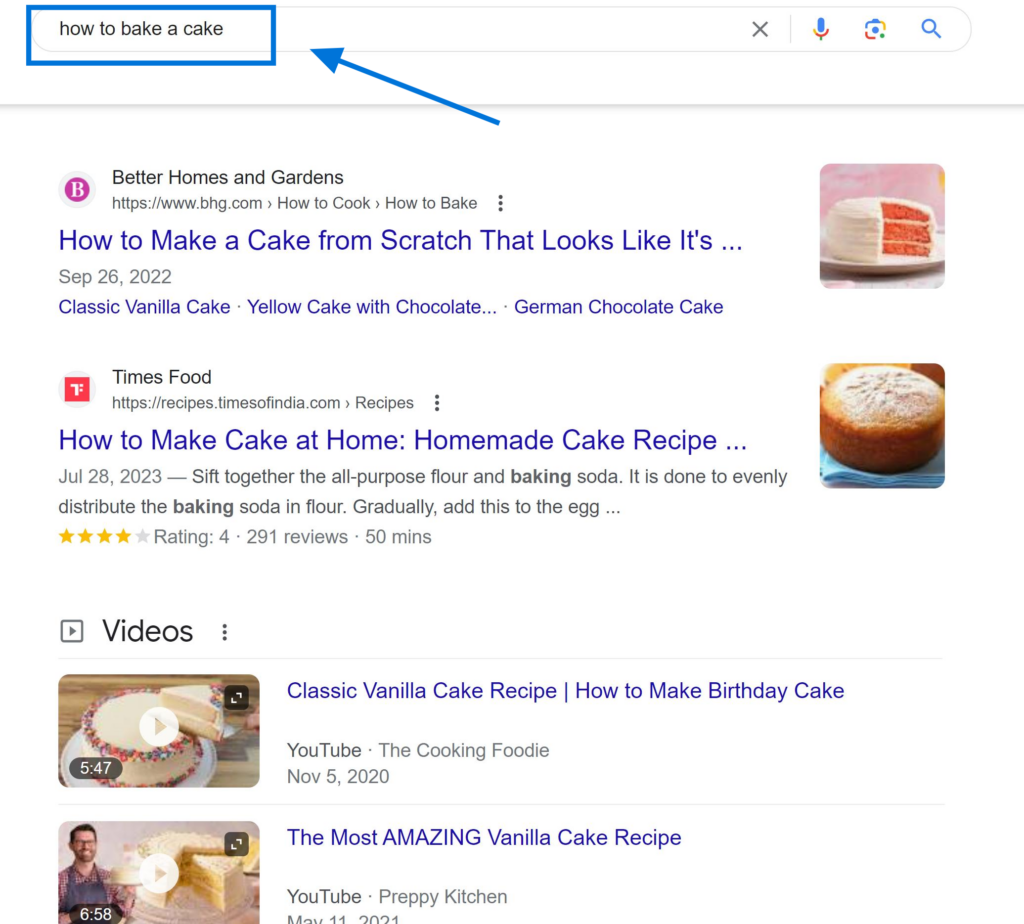
One notable characteristic of informational keywords is their high search volume. Many people seek information online every day, making these types of queries quite common.
However, it’s important to note that while these keywords attract significant traffic, they may not directly lead to conversions or sales.
To optimize content for informational queries, it’s essential to incorporate relevant informational modifiers into the text. These keyword modifiers provide additional context and help search engines understand the intent behind the users’ query.
For example, if someone searches for “best exercises,” including words like “beginner-friendly” or “at home” can refine the results and cater to their specific needs.
Creating valuable informational content requires understanding the user’s intent and addressing their concerns comprehensively.
You can establish yourself as an authoritative source in your field by providing detailed explanations and practical examples within your content.
In contrast to navigational keywords that guide users towards specific websites (e.g., typing in Facebook.com), informational keywords serve as seed keywords that initiate broader searches related to a particular topic.
Importance of Informational Keywords
Incorporating informational keywords into your content helps establish authority and expertise.
When users search for information online, they are looking for answers to their questions or solutions to their problems.
By optimizing your content with relevant informational keywords, you can position yourself as a trusted source of valuable information in your industry.
Targeting informational keywords allows you to attract potential customers at different stages of the buyer’s journey.
Not everyone who searches online is ready to make an immediate purchase. Many users start by researching and gathering information before making a decision.
By targeting informational keywords, you can capture the attention of these potential customers early on and nurture them throughout their buying process.
You can build trust with your audience and increase brand visibility by providing valuable information.
When users find helpful and informative content on your website or blog, they are more likely to view you as an authority in your field. This builds credibility and establishes a positive perception of your brand.
As people share and recommend your content, it also increases brand visibility, attracting more potential customers.
Ignoring informational keywords limits your ability to reach a wider audience and compete in search rankings. Suppose you focus solely on transactional or commercial keywords related to selling products or services. In that case, you miss out on capturing the attention of users who are earlier in their research phase.
By neglecting informational keywords, you may struggle to rank well in search engine results pages (SERPs) since search engines prioritize websites that provide comprehensive and relevant information.
To illustrate the importance of incorporating informational keywords into your content effectively, consider the following examples:
- Let’s say you run a fitness blog targeting individuals interested in weight loss. Instead of solely focusing on product-related keywords like “best weight loss supplements,” incorporating informational keywords such as “how to lose belly fat” or “healthy meal plans for weight loss“ can attract a broader range of readers who are seeking advice or guidance.
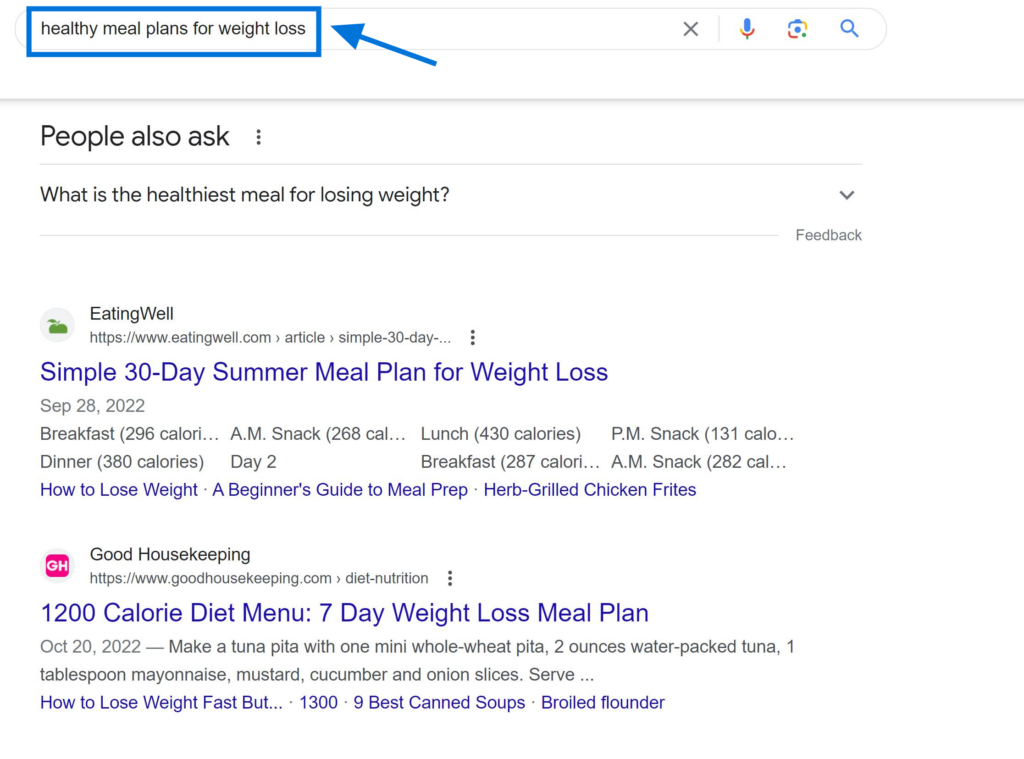
- Similarly, if you have an e-commerce website selling skincare products, optimizing your content with informational keywords like “how to prevent acne” or “best ingredients for glowing skin“ can help you engage with potential customers who are researching skincare routines and looking for expert advice.
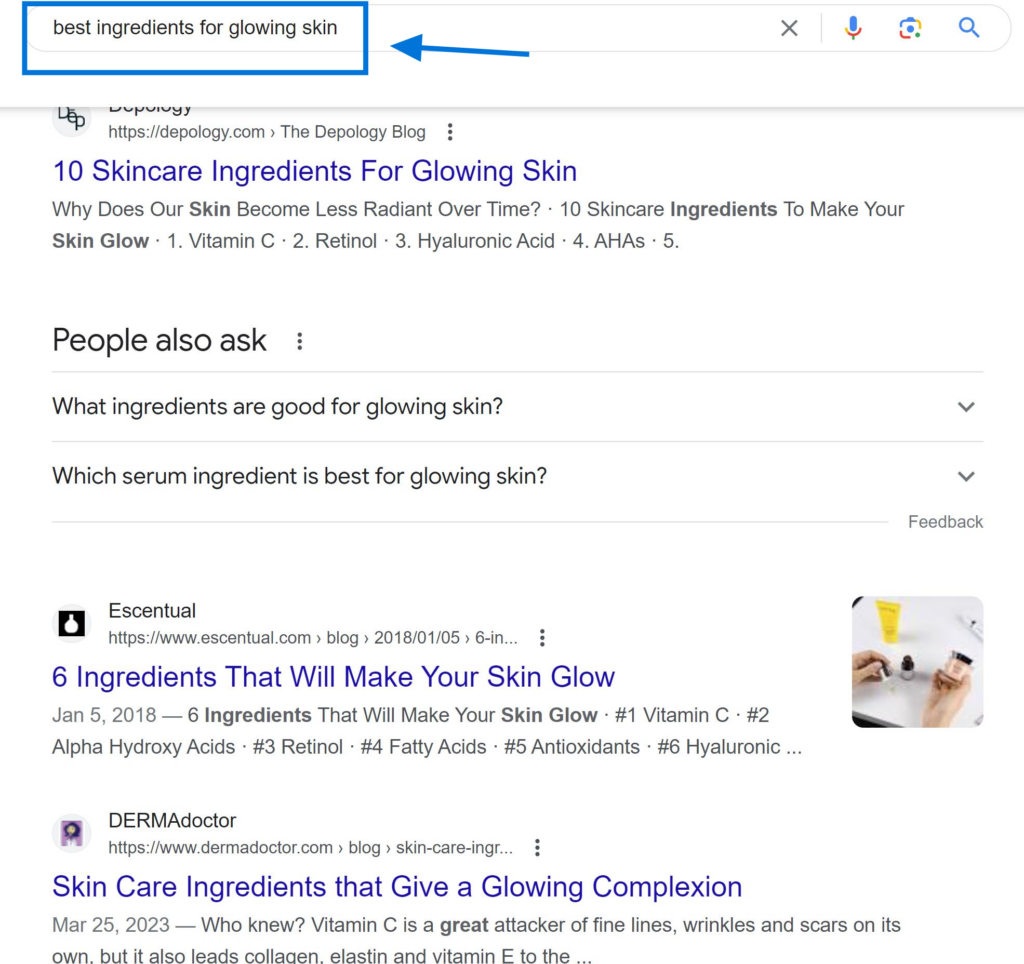
Targeting the Right Informational Keywords
Conduct keyword research to identify relevant informational queries related to your industry or niche. Targeting the right informational keywords is crucial. These keywords are typically used by users who are seeking information rather than looking to make a purchase.
By understanding what your target audience is searching for, You can create informative content that addresses their needs and establishes your expertise.
Consider user intent when selecting which informational keywords to target. User intent refers to the reason behind a search query.
Are users looking for answers and solutions or simply seeking more information? By analyzing user intent, you can align your content with their needs and increase the chances of attracting relevant traffic.
Long-tail informational keywords often have less competition and higher conversion potential.
Long-tail keyword phrases consist of three or more words and are usually more specific than broad-match keywords. While they may have lower search volume compared to broader terms, long-tail keywords tend to attract highly targeted traffic with a clear intention. This means that visitors who find your website through long-tail searches are more likely to convert into leads or customers.
Use tools like Google Trends or keyword research tools such as SemRush, Ahrefs, or Moz to gauge the popularity and competitiveness of different informational queries. These tools provide valuable insights into search trends over time and help you identify relevant keywords that align with current interests. They can help you understand how competitive certain keyword phrases are, allowing you to prioritize your efforts accordingly.
When conducting keyword research, focus on finding relevant keywords that align with both search traffic and commercial potential for your business. It’s important to strike a balance between high search volume and relevance to ensure that your content reaches the right audience.
To effectively target informational searches, it is essential to create quality content that provides helpful information on a specific topic within your industry or niche. Your SEO strategy should revolve around creating informative articles, guides, tutorials, or videos that address the questions and needs of your target audience.
Understanding the search intent behind informational queries allows you to tailor your content to provide valuable answers and solutions. This will not only improve your visibility in search engine results but also establish your brand as a reliable source of information.
Optimizing Web Pages for Informational Keywords
Creating high-quality, informative content that comprehensively addresses the user’s query is crucial when optimizing web pages for informational keywords.
By providing valuable information, you can enhance your website’s visibility in organic search results and attract more organic traffic.
Here are some strategies to optimize your web pages effectively:
Structure Your Content for Better Readability and SEO Optimization
To improve the readability and search engine optimization (SEO) of your content, it’s important to structure it properly.
Use headings, subheadings, bullet points, and other formatting techniques to break your content into easily digestible sections. This not only helps users navigate through the information but also assists search engines in understanding the hierarchy of your content.
For example:
- Use H2 tags for major sections or talking points.
- Employ H3 tags for subtopics within each section.
- Utilize bullet points or numbered lists to highlight key points or steps.
By organizing your content this way, you make it more accessible and appealing to both readers and search engines.
Enhance User Experience with Visual Elements
Incorporating relevant images, videos, or infographics can greatly enhance the user experience on your web page.
Visuals not only make the content more engaging but also help convey complex ideas or concepts in a simplified manner. They provide an opportunity to optimize these media files by using descriptive filenames and alt tags containing target keywords.
For instance:
- Embed informative videos related to the topic.
- Include images that visually represent key concepts.
- Create infographics summarizing important data or statistics.
Remember that multimedia elements should complement the text rather than distract from it. Strive for a balanced combination of text and visuals that work harmoniously together.
Focus on Site Speed
Page load speed plays a vital role in both user experience and SEO. Slow-loading websites tend to have higher bounce rates as users lose patience waiting for content to appear. This negatively impacts your search engine rankings.
To optimize your page speed:
- Compress images and videos to reduce file sizes.
- Minify CSS and JavaScript files to decrease load times.
- Enable browser caching for repeat visitors.
- Utilize a content delivery network (CDN) to distribute your website’s resources across multiple servers.
By prioritizing site speed, you create a better experience for users and improve your odds of ranking higher in search engine results pages (SERPs).
Tools for Finding and Analyzing Informational Keywords
Utilize keyword research tools like SEMrush, Ahrefs, or Google Keyword Planner to discover informational keywords with high search volume and low competition.
Keyword research tools are invaluable. These tools provide valuable insights into the search terms people use and help you identify keywords with a high search volume but relatively low competition.
By using these tools, you can uncover hidden gems that will drive organic traffic to your website.
Ahrefs is another powerful tool that provides detailed keyword analysis and competitive intelligence. It offers a wide range of features, including backlink analysis, site audits, and competitor analysis. Ahrefs’ Keywords Explorer allows you to explore different keyword ideas based on search volumes and difficulty scores.
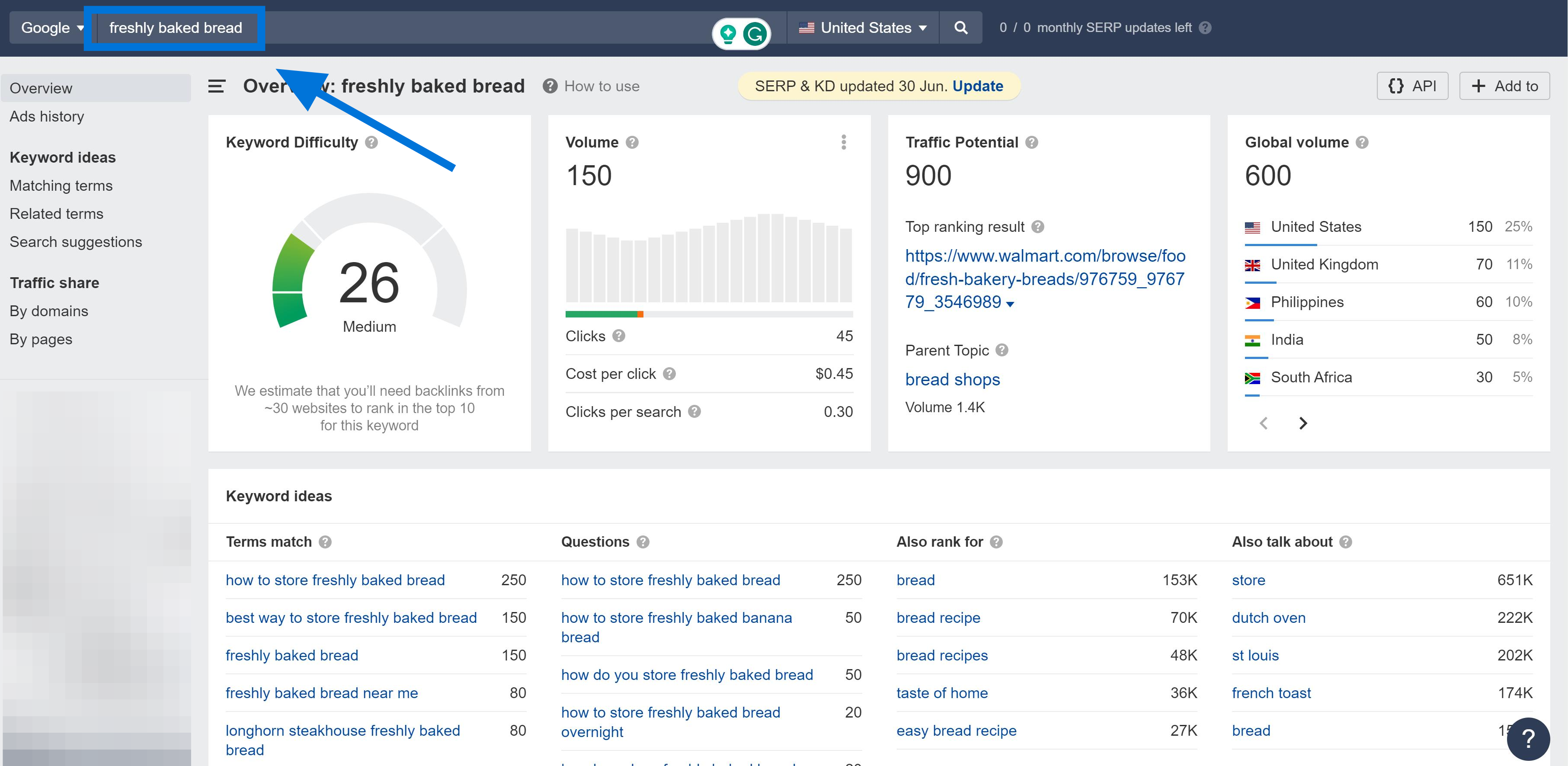
Google Keyword Planner is a free tool provided by Google itself. While it primarily caters to advertisers looking for paid keywords, it can still be useful for identifying informational keywords. You can enter a seed keyword or topic into the planner and get suggestions along with their monthly search volumes.
Analyze the search engine results pages (SERPs) for your targeted informational keywords to understand the type of content that ranks well.
Once you have identified potential informational keywords using keyword research tools, analyzing the search engine results pages (SERPs) associated with those terms is important. This will give you insights into what type of content is ranking well for those specific queries.
By examining the SERPs, you can gain an understanding of how Google interprets user intent behind certain searches. You may find that certain types of content, such as how-to guides, listicles, or comprehensive articles, tend to rank higher for informational queries.
Pay attention to the format of the content that appears on the SERPs.
- Are there featured snippets?
- Are there videos or images ranking prominently?
This information can help you optimize your own content to better align with what Google deems valuable for those specific keywords.
Use Google Analytics to track the performance of your web pages optimized for informational keywords, including organic traffic and engagement metrics.
Once you have created and optimized your web pages around informational keywords, it’s crucial to monitor their performance.
Google Analytics is a powerful tool that can provide valuable insights into how well your pages are performing in terms of organic traffic and engagement metrics.
By tracking the organic traffic and engagement metrics such as bounce rate, time on page, and conversion rate associated with your informational keyword-focused pages, you can identify areas for improvement.
If certain pages are not attracting as much traffic or failing to engage visitors effectively, you can make data-driven decisions to refine your content strategy.
Consider using question-and-answer platforms like Quora or Reddit to identify common questions related to your industry.
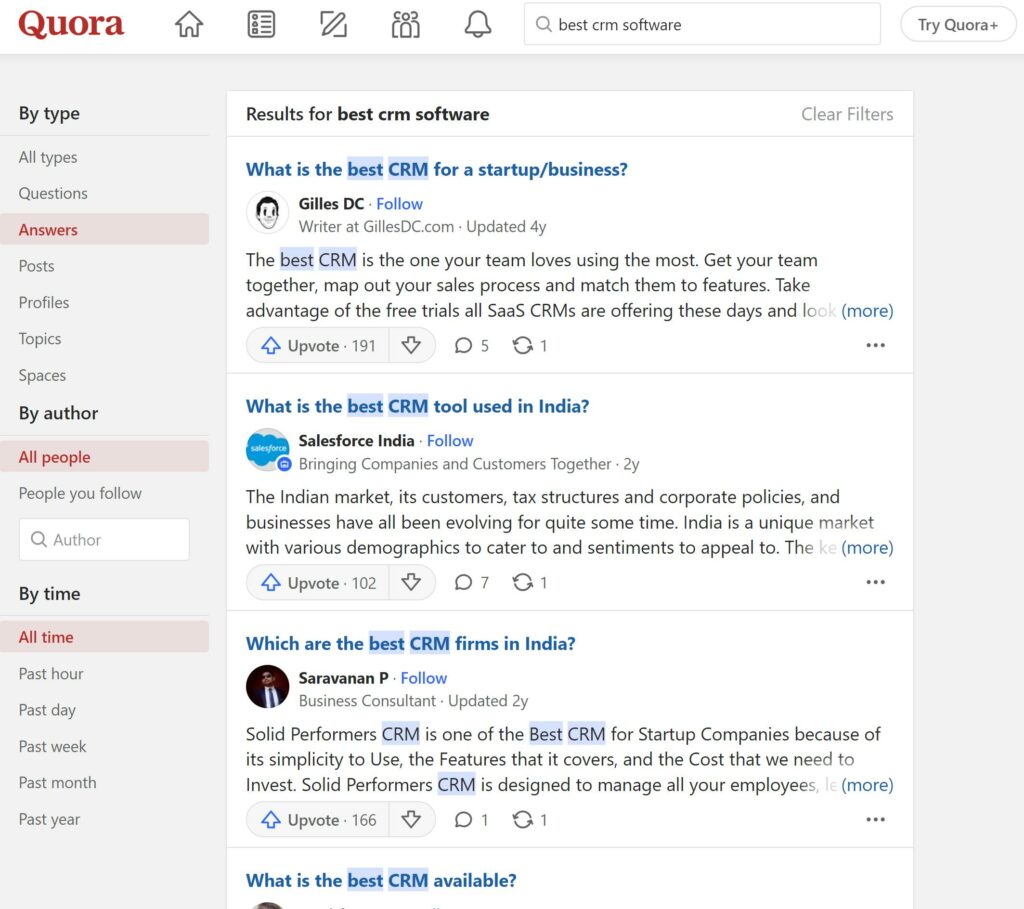
Question-and-answer platforms like Quora and Reddit offer a wealth of information about common questions people have related to various industries.
By actively participating in these platforms and monitoring relevant discussions, you can identify recurring questions that indicate popular informational topics within your industry.
These platforms allow you to directly engage with users seeking answers or advice.
Additional FAQs on Informational Keywords
What is the Importance of Targeting Informational Keywords?
Targeting informational keywords is crucial because it helps establish your credibility as an expert in your field.
By providing valuable information through targeted content, you can attract potential customers who are looking for answers or solutions related to your industry.
How Do I Find Relevant Informational Keywords?
You can use various tools like Google Keyword Planner, SEMrush, or Ahrefs to find relevant informational keywords.
These tools will help you identify popular search terms in your niche and give you data on their search volume and competition level.
Can I Optimize My Existing Web Pages for Informational Keywords?
Absolutely! You can optimize your existing web pages by incorporating relevant informational keywords into their titles, headings, meta descriptions, and content.
It will help search engines understand what your page is about and improve its visibility in organic search results.
Are Long-Tail Keywords Considered as Informational Keywords?
Yes, long-tail keywords often fall under the category of informational keywords. They are specific search phrases that users use when looking for detailed information or solutions to their queries.
Targeting long-tail informational keywords can help you attract highly targeted traffic to your website.
How Often Should I Update My Content Targeting Informational Keywords?
Regularly updating your content targeting informational keywords is essential to stay relevant and provide up-to-date information to your audience.
Aim to refresh and add new content at least once every few months, depending on the industry and the rate of change in your niche.
Conclusion: The Significance of Informational Keywords
Congratulations! You’ve now gained a solid understanding of the significance of informational keywords. By targeting these keywords strategically, you can boost your website’s visibility and attract more organic traffic.
Remember, informational keywords are essential because they help answer users’ questions and provide valuable information.
To make the most of informational keywords, ensure that you optimize your web pages effectively.
Tools like Google Keyword Planner and Ahrefs will help to find relevant keywords and analyze their search volume and competition.
By doing so, you’ll be able to target the right informational keywords that align with your content and attract your target audience.
So, don’t underestimate the power of informational keywords! Incorporate them into your SEO strategy, create high-quality content around them, and watch as your website climbs up the search engine rankings.
Start implementing these techniques today and see the difference they can make for your online presence.
